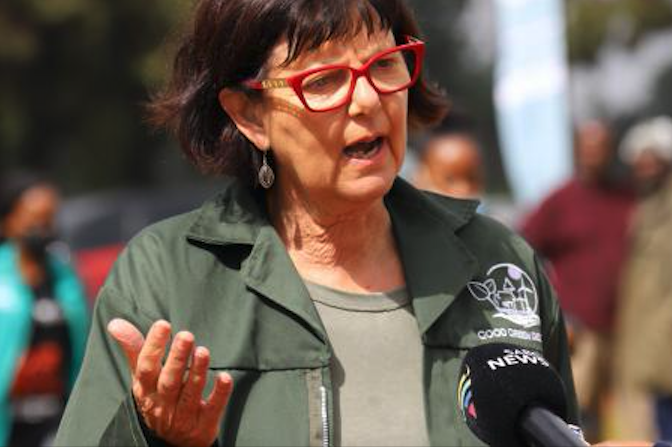- Bloomberg reports that South Africa Environment Minister, Barbara Creecy, has called for immediate financial aid for developing countries hit by climate disasters, laying the bill at the door of the US and Europe’s richest nations.
- Wealthy countries should provide aid through a so-called loss and damage mechanism, and multilateral development banks should be recapitalized to provide more finance to tackle global warming, she said on the sidelines of the COP27 international climate summit in Egypt.
China and India — the world’s biggest and third-biggest emitters of greenhouse gases respectively — should be excluded from paying compensation as they are still developing economies, Creecy added.
The minister’s comments, which came after she met with other African ministers to align their positions, highlight the global rift on climate matters. Officials from the developing world have long said that wealthy nations, which have benefited from the industrialization that’s warmed the planet for two centuries, are liable for compensation.
Related: Link to Minister Creecy’s speaking notes on the new collective quantified goal on climate finance at CoP27 in Sharm El-Sheik, Egypt HERE
“From the perspective of the African Group of Negotiators we do need to see immediate support for loss and damage on the continent,” Creecy said. “Of course” we want money right now, she added.
China emits 11.47 billion tons of carbon dioxide equivalent annually, while India produces 2.71 billion tons, according to Carbon Atlas. The US emits 5 billion tons, and Russia lies in fourth place at 1.76 billion tons.
Africa has been hit by a series of devastating climate-related weather events in 2022.
Chad and Nigeria are among nations battling floods, and more than 400 people died when torrential rains hit the South African city of Durban. Cyclones have pummeled the southeast of the continent, and the Horn of Africa is in the midst of its worst drought in four decades.
Still, talks at COP27 will focus on “cooperation and facilitation” not “liability or compensation,” Egypt Foreign Minister Sameh Shoukry said. He added compromise was necessary to get the issue on the agenda for the first time, and the aim is to reach a “conclusive decision” by the COP meeting in 2024.
The South African minister’s comments indicate that disputes lie ahead.
Creecy also reiterated the need for rich nations to provide more cash for climate adaptation — money needed to buttress weather-battered infrastructure and irrigate crops. She said a longstanding, never-honored pledge to provide developing nations with more than $100 billion in annual climate finance needs to be met to “restore trust.”
In the years ahead, multilateral debt institutions such as the World Bank will need to be recapitalized and become less risk averse to provide the scale of the finance needed, according to the minister. More assistance will be needed in the form of grants, she added.
“We also need a fundamental restructuring of debt,” Creecy said.“The majority of African countries are heavily indebted. We can’t have a situation where a climate crisis, which is not of their making,” worsens that situation.
Source: Bloomberg















